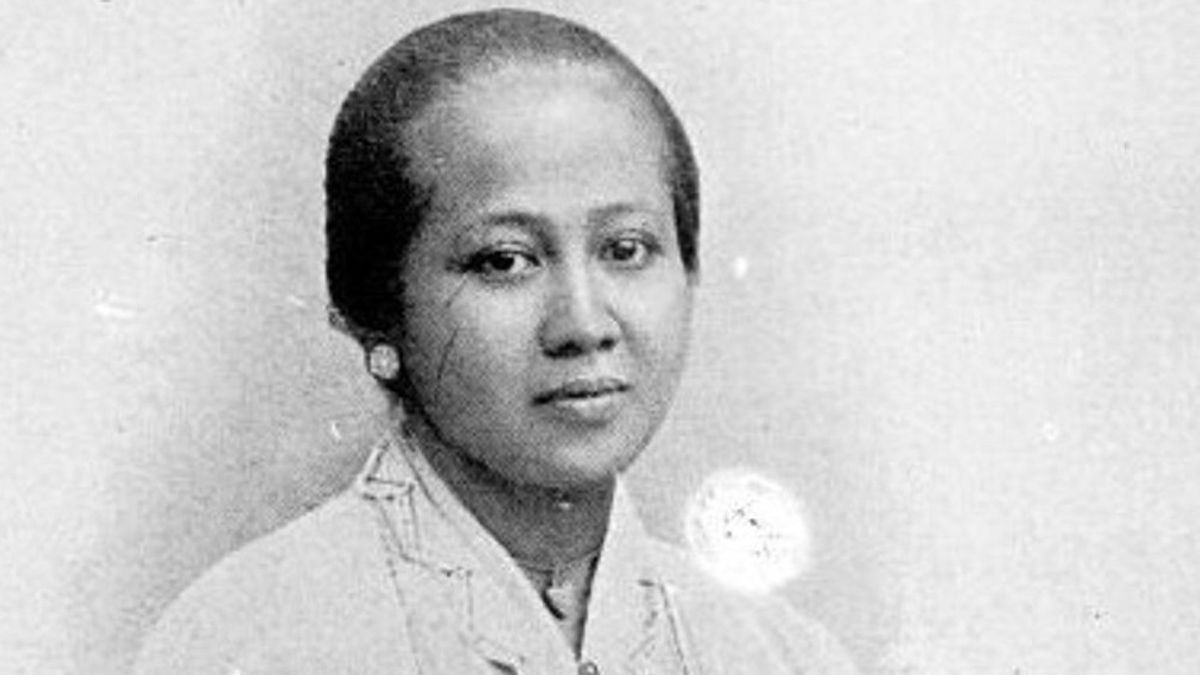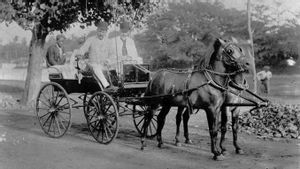YOGYAKARTA - Raden Ajeng Kartini Djojo Adiningrat has been used as a symbol of the struggle for the emancipation of Indonesian women to this day. Exactly every 21 April, the Indonesian people commemorate Kartini Day.
RA Kartini, who was known to be smart and insightful, was known to have wanted to continue his education in the Netherlands. At the end of his life, Kartini also realized one of her dreams, namely building a school in Rembang.
This step was taken with the support of her husband. From the story narrated, RA Kartini had the desire to continue her education in the Netherlands. At the end of his age, Kartini's dreams came true.
A school in Rembang was successfully established with the support and assistance of her husband, KRM Adipati Ario Singgih Djojo Adhiningrat who is the Regent of Rembang. How was Kartini's real struggle?
Reporting from the book The Other Side of Kartini published in the Temporary Exhibition on the Other Side of Kartini by the National Awakening Museum by the Ministry of Education and Culture of the Republic of Indonesia, follows the story of Raden Ayu's struggle in education.
A pen pal letter to the founding of the schoolKartini had the desire to continue her education in the Netherlands. Her determination was a form of thinking progress and also a fire of her enthusiasm to break free from the shackles of tradition that held women back at that time.
In addition, RA Kartini's Dutch language skills have continued to develop since she was secluded at the age of 12. The reason is, Kartini often reads and sends letters to her friends who come from the Netherlands.
Kartini's readings were obtained from one of her friends, Rosa Abendanon. From the correspondence activities and the intake of reading references, the spirit of change and forward thinking like European women was born from Kartini.
Kartini had also sent a letter to Mrs. Ovink Soer, in which she wrote a wish to seek a scholarship to the Netherlands. Kartini openly stated the ideals of herself and some of her friends who were in line to become a pioneer and light of awareness for her people.
With this letter, he begged Ovink Soer to take him to the Netherlands. Unfortunately, Kartini's hopes and determination had to run aground, because her parents did not give permission. After opposing her wish to go to Holland, Ibu Kartini got the opportunity to study as a teacher.
This was supported by the announcement of a new colonial policy by the Dutch government in September 1901. However, that was not the end of Kartini's hopes. The younger brother of Pangeran Jawa, RM Sosrokartono, grabbed the opportunity to get education as a teacher.
This was also in line with the implementation of the new colonial policy of the Dutch Government in September 1901. At that time, Queen Wilhelmina was facing the implementation of ethical politics which required the government to improve the welfare of the people of the Dutch East Indies.
On August 8, 1900, hope began to emerge; JH Abendanon, who at that time served as Director of the Department of Education, Crafts and Religion, visited Jepara Regency. His arrival aims to socialize the plan to establish a kostschool (boarding school) for girls of the aristocracy.
However, this was rejected by the majority of regents. They use the traditional excuse that prohibits girls from being educated outside the home.
In June 1903, Kartini and Roekmini, her siblings, made up their minds to establish a school for girls in the pendopo of Jepara Regency. Lessons given to students there include reading, drawing, writing, cooking, manners, manners, and handicrafts.
Follow other domestic and foreign news only on VOI.id, Time to Revolutionize the News!
MEMORY OtherThe English, Chinese, Japanese, Arabic, and French versions are automatically generated by the AI. So there may still be inaccuracies in translating, please always see Indonesian as our main language. (system supported by DigitalSiber.id)









